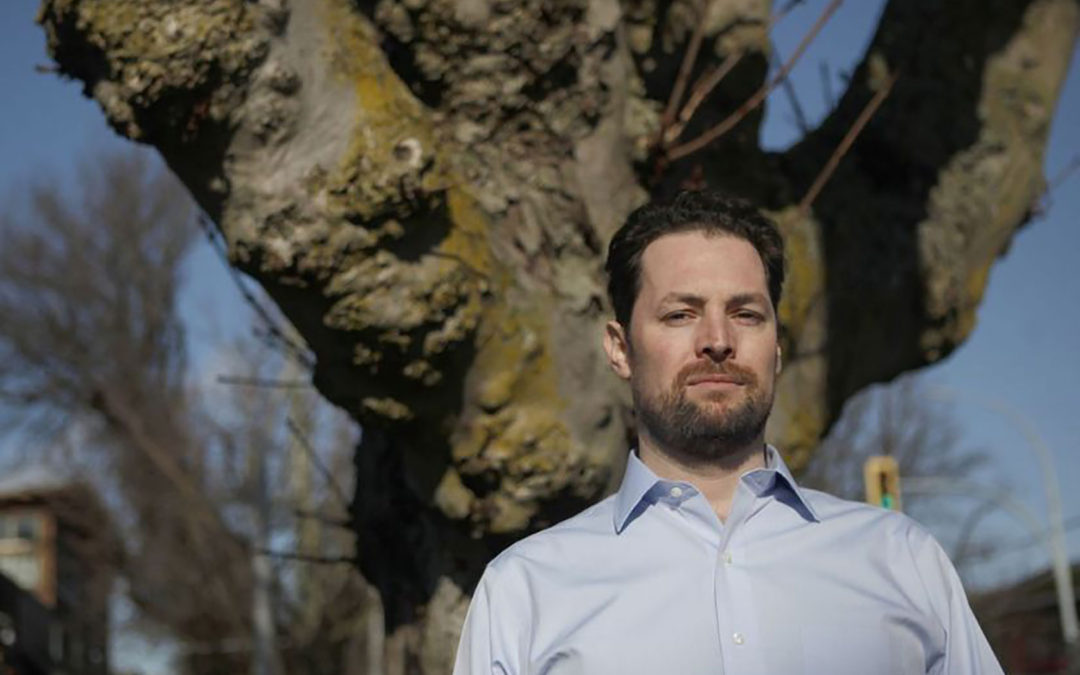Ian Mulgrew: B.C. cannabis police ‘blink,’ and reverse their stance on evidence
Embarrassed by a draconian policy revealed by a $1.5-million fine imposed on an illicit cannabis shop, the B.C. pot police will now provide legal disclosure about the grounds for the staggering penalty and any other tickets issued.
Deputy director of the Community Security Unit Lisa Romanuik said in a letter dated Friday to Alex Robb, general manager of Victoria’s Trees of Eden Island Grown, that he would receive all relevant evidence related to the stiff rebuke.
“We have reconsidered certain aspects of the SCU Administrative Hearing Process for Administrative Monetary Penalties,” she wrote.
Although those cited must still ask for an administrative hearing to obtain full disclosure, Romanuik explained applicants who do so now will have 45 days after receiving the disclosure package to decide whether to dispute the penalty or cop a plea for a 50 per cent discount.
The general manager of eight now-closed marijuana stores in Victoria, Nanaimo and Vancouver employing 100 people, Robb said he was overwhelmed to be held personally responsible by the nascent enforcement agency upholding the new Cannabis Control and Licensing Act.
He said the numbered company, in which he is a minority shareholder, should have been named as the operator of the stores and owner of the stock.
Originally, he was given a choice of admitting his guilt and waiving his rights in exchange for the discount or contesting the penalty in a process presided over by the CSU director — but he would have to make the decision within 30 days of receiving the Jan. 20 notice without any disclosure. The CSU alleges that Trees of Eden Island Grown sold pot between May 29 and July 31, 2019 without a retail licence.
Until Postmedia’s report Friday on one of the first fines imposed under the law, the CSU policy provided disclosure only after those who were impugned rejected the plea deal.
Now, they will be granted disclosure and have 45 days to decide whether to contest the notice or waive their entitlement to a hearing and pay the reduced penalty.
“Acceptance of a waiver after 45 days and up to the date that director (Jamie Lipp) conducts the administrative hearing will be at the discretion of the director,” Romanuik added.
Robb was relieved — his firm continues to lease its store locations while awaiting a decision from the province on a licence to sell cannabis.
“It appears they have blinked, and have changed their process to try to address their challenge, and they may have themselves seen the reason to question the legitimacy of their own process,” Robb said.
“I am going to send the application for a hearing to them to see what their disclosure package looks like.”
The reversal by the CSU, however, only underscores the Cheech-and-Chong chaos that has marked Public Safety Minister and Solicitor General Mike Farnworth’s handling of cannabis legalization, which occurred in October of 2018.
While he dithered, Trees and its sister stores were among numerous outlets across B.C. illegally flogging cannabis products.
The province that was once a global capital of the marijuana world still doesn’t have a cannabis retail sector capable of servicing the market, keeping countless unlicensed dealers in business.
Robert Bradbury, a director of High Tide Cannabis, said the CSU visited that firm’s Sooke store, 642 Cannabis, last summer. It also was later raided and closed just before Labour Day.
Nevertheless, Bradbury pointed out 642 Cannabis was on the list of those about to reopen as an approved retail store while Robb had received one of the first fines.
He also personally submitted an application for a licence back in Sept. 2018, and is also still waiting.
The entire program raises more questions than answers, he said: “In fact, there are few answers when one asks about licensing information. Seems like a very uneven playing field!”
Bradbury relates the same experience as other applicants: they are constantly asked to provide additional information and documents are regularly lost.
Initially, Bradbury’s entire application was lost yet his credit card was charged $5,000, he said.
He had to revise a site plan as it was outlined in blue ink not black; then, he had to redo an organization chart because it was missing a name though the title was self-explanatory.
“You purchase a building, install security and monitoring equipment, upgrade that building, insure it, absorb additional costs and wait months and months for your number to be selected for a licence … this is just wrong,” he insisted.
“We hear concerns about potential money laundering. For a small store in the Otter Point area of Sooke? It pales by comparison to downtown Victoria or the casinos across B.C. One has to question how and where some of the large dispensaries that operated prior to legalization and then closed for legalization secured their products. It is time someone does an exposè on how the government licensing authority in this industry uses a pick-and-choose approach in processing applications.”
Sounds like a job for the provincial money-laundering inquiry.


Recent Comments